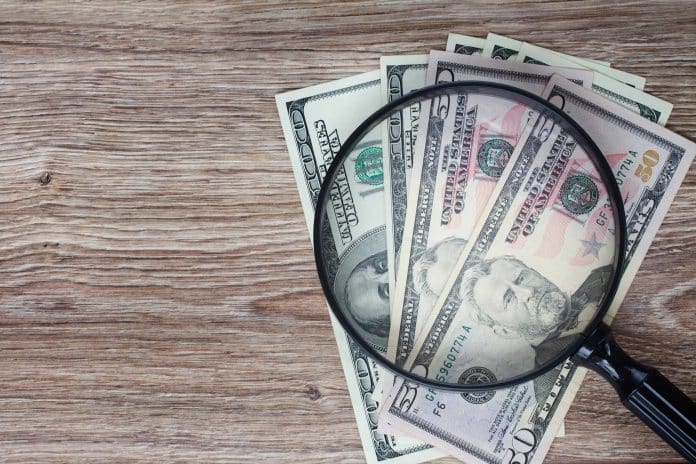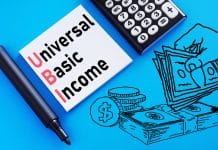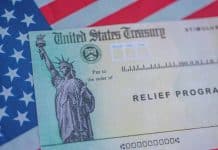
Have you ever felt like you have money but you misplaced it? Do bank employees put you on hold for hours? Do you keep coming up with nothing after searching under the couch? You might be lucky today, so hold off on opening your piggy bank. This is because there could be property, such as money, waiting for you to claim it.
What Does Unclaimed Money Mean?
You have probably seen ads or heard the news mention unclaimed money that Americans may be able to receive across the country. Unclaimed property is “abandoned” property from businesses or financial institutions. This means that the properties or accounts that have been designated as abandoned have had no activity in a certain period. This period of inactivity has a specific term to refer to it — a dormancy phase. After this time, the property is considered unclaimed and must be returned to the state. It is a legal obligation that the property goes back to the state! According to the National Association of Unclaimed Property Administrators (NAUPA), one out of every ten people has a property that they may claim.
What are the Different Types of Unclaimed Property?
In general, there are two types of unclaimed property: tangible and intangible. The most popular sort of unclaimed property is intangible, which includes stocks and uncashed wages. A safe deposit box, on the other hand, would be an example of tangible unclaimed property. There are plenty of popular categories of the property that you might be able to claim, including:
- Annuities
- Certificates of deposit
- Checking accounts
- Savings accounts
- Contents of safety deposit boxes
- Customer overpayments
- Insurance payouts or refunds
- Mineral royalty payments
- Refunds
- Stocks
- Traveler’s checks
- Trust distributions
- Uncashed dividends
- Uncashed payroll checks
- Money orders or gift cards that have not been used (in some states)
- Security deposits for utilities
How to Find This Type of Money?
Fortunately, finding an unclaimed property is easier than you would expect. Because there are several forms of this type of property, there are various methods for finding some, depending on the source. Furthermore, there is a thorough search tool that may help you. While there is no federal government website that searches the entire country for funds to claim, there are other alternatives to try.
There are official state government databases that can assist you in locating the unclaimed property that is rightfully yours for free. In order to find the right search engine for your state, go to the NAUPA website. Every state is different, and this is something to bear in mind. Each state will have its own set of rules for claiming the money. Aside from using a state search tool, you may also consider the following search options when looking for your money:
- Employers
- Insurance
- Tax Refunds
- International Sources
- Banking and Investments
Employers
There are a few ways you can go about getting money from the employers you worked for. The United States Department of Labor (DOL) may be able to assist you in case you are looking for unpaid wages. If your employer violated labor rules, they may be entitled to reclaim any back wages owed to you. If you believe you have wages that you never received, you should search the DOL website for workers who have money that needs someone to claim it.
On the other hand, if you believe you are eligible for a pension from a previous job, there is another website you can visit. The Pension Benefit Guaranty Corporation (PBGC) can assist individuals in locating pension payments that are legally theirs if a corporation went out of business or terminated a specific pension plan.
Insurance
While there are many insurance sources for unclaimed property, two of the most popular are VA Life Insurance and FHA Insurance. You can search the United States Department of Veterans Affairs (VA) database for unclaimed VA Life Insurance property. It is crucial to note, however, that the database will not include money due from Servicemembers’ Group Life Insurance (SGLI) or Veterans’ Group Life Insurance (VGLI) from 1965 to the present.
Moreover, you might find that FHA insurance owes you money. The United States Department of Housing and Urban Development (HUD), which incorporates the Federal Housing Administration (FHA), would be the organization responsible for issuing refunds. Through the HUD database, anybody can look for these refunds that they may claim.
Tax Refunds
If you believe you are due a tax refund, you should contact the Internal Revenue Service (IRS). You can find out what you may be able to get back by visiting their website.
International Sources
Unclaimed money from foreign countries might sometimes end up in your hands. If this is the case, there is a website where you can file your foreign claims. This website is available through the United States Department of Treasury.
Banking and Investments
There are lots of scenarios in which you may be able to claim funds. There are four typical sources of this type of unclaimed money:
- Bank Failures
- Credit Union Failures
- SEC Claims Funds
- Savings Bonds
When it comes to bank failures, the Federal Deposit Insurance Corporation (FDIC) may allow you to see if you have any unclaimed money. Nevertheless, in the case of credit union failure, you can look for unclaimed funds through the National Credit Union Administration (NCUA).
If a business (or individual) owes investors money, there may be enforcement cases for Securities and Exchange Commission (SEC) unclaimed money. You can check the SEC website to see if you are due any.
Lastly, some people may be due to savings bonds. People can check the TreasuryHunt.gov website to see whether there are any matured savings bonds that are no longer earning interest.
Bottom Line
In brief, if you have any financial accounts or properties that have been inactive for a year or more, they will return to your state. Do not freak out, they are still yours. They are just waiting for you to claim them. Your money is considered unclaimed once it is turned over to the state. So, it is not some free money from the government, but your money that has been abandoned for a while. This should also be a reminder for you to always keep track of any money you have. This should also remind you to update your contact information, especially your address. When searching to see if you have unclaimed money, there are several sources to consider.


















